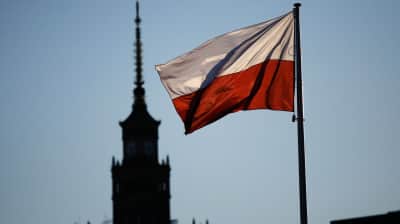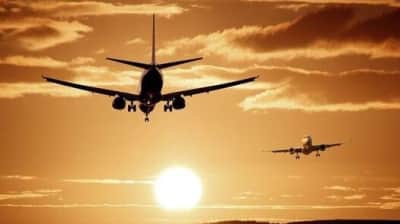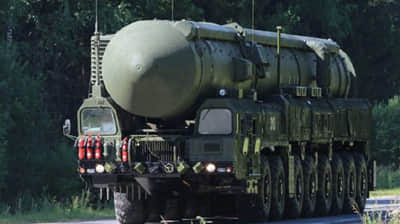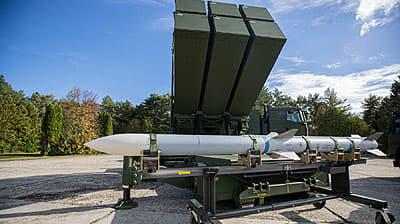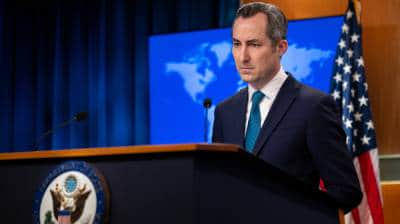Russia prepares to impose martial law, no progress expected in negotiations – Centre for Defence Strategies
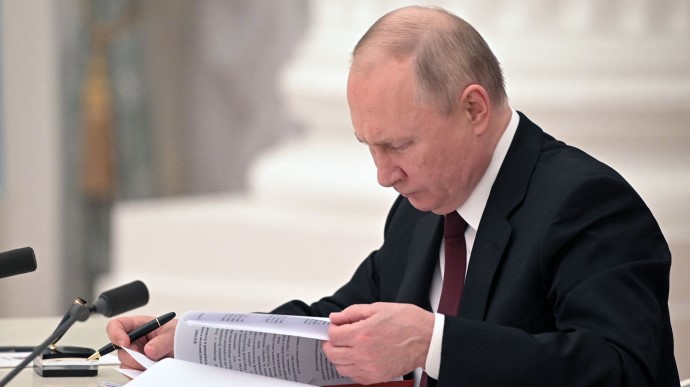
THURSDAY, 3 MARCH 2022, 21:19
On 4 March, Russian authorities plan to impose martial law throughout all territories of Russia to prevent protests and create the necessary reserve of troops to continue the war with Ukraine.
Source: digest of the Centre for Defence Strategies, 3 March
The imposition of martial law in Russia
On March 4, Russian authorities will impose martial law throughout all territories of Russia. The Security Council of the Russian Federation held a meeting on 3 March to discuss this plan.
The imposition of martial law will make it possible to prevent possible mass gatherings at possible anti-war demonstrations, and protests related to sanctions. In addition, the imposition of martial law could help Russia conduct a mobilisation with the object of creating the necessary troop reserves to continue the war with Ukraine.
The war crimes of the Russian Federation
Russian troops continue to commit war crimes and violations of the Convention for the Protection of Civilian Persons in Time of War. Thus, in Ukrainian cities and towns, Russian artillery and aircraft continue to kill civilians and destroy critical infrastructure and residential buildings. As a result of this criminal shelling, dozens of people died again today in Chernihiv, Kharkiv and Mariupil.
According to ORDLO (the uncontrolled portions of the Donetsk and Luhansk Oblasts), the Russian Federation also plans to use mobilised Ukrainian citizens with Russian passports in the 1st and 2nd army corps in attacking actions, in particular to storm Kyiv and Odessa as vanguard units that are most likely to die.
Video recording of regular robberies and looting by Russian forces in different regions of Ukraine continues.
The second round of Ukrainian-Russian negotiations
On 3 March, the second meeting of the Ukrainian and Russian delegations took place in Belarus. Considering the rhetoric of high-ranking Russian officials on the eve of the meeting, no special progress was expected in resolving the issue of ending the war through diplomacy during the negotiations.
The Belarusian threat
Belarusian troops are stationed in columns on the border with Ukraine in readiness to carry out an invasion in support of Russian troops, which have significantly slowed down the tempo of their attack.
Considering the spread of information on the Internet, and through official channels in Belarus about the true state of the unexpected resistance of the Ukrainian Armed Forces, there is a possibility that Belarusian servicemen refuse to carry out criminal orders and put themselves in mortal danger, following the example of Russian marines in Crimea. At the same time, it is not out of the question that the most morally and psychologically prepared units of the landing assault troops of the Republic of Belarus and individual units of other types and troops will enter.
The status of the Strategic Restraint Forces of the Russian Federation
The Strategic Restraint Forces of the Russian Federation continue to be in a special mode of service on Putin's order. This is the continuation of nuclear blackmail that Putin instigated in preparation for peace negotiations with Ukrainian officials, as well as negotiations with Western officials.
Operational situations:
Kyiv
Russian occupying forces continue a try to form a semicircle around the capital from the north, west and east. The greatest danger now continues to issue from the north and north-west of Kyiv (Ivankiv, Vorzel, Bucha, Irpin, Hostomel). Intense fighting continues on the approaches to Kyiv at a distance of 10-40 km, where the Russian forces lose vehicles and personnel. To the west of Kyiv, the Ukrainian Armed Forces liberated and held the city of Makariv.
Regional centres
The siege of Mariupil by Russian forces continues. The destruction of civilian infrastructure by artillery fire and multiple rocket launchers is ongoing. The city is holding on.
Russian troops are stationed in Kherson and control the city's main roads and facilities.
In Mykolaiv, the Armed Forces of Ukraine hold off the attack of Russian forces, with periodic Russian attempts to break through the defence by landing or by the means of heavy weapons.
20 km west of Odessa, large landing ships (4-8) and warships of the Russian Navy (5-7) are on a raid to make another attempt to land on the coast near the city. The city is constantly under fire, some of this from the ships.
Estimated losses of the Russian occupying forces as of 8 p.m. on March 3
Tanks – more than 200 units
Armoured combat vehicle of different types – more than 800 units
Helicopters – more than 30
Planes – more than 30
Personnel – about 9000 persons
Diplomatic dimension
After a one-and-a-half-hour telephone conversation between Russian President Vladimir Putin and French President Emmanuel Macron, Macron said that Putin "did not give any assurances," but instead would continue military intervention due to non-fulfilment of his demands by Ukraine, therefore, "the worst should be expected."
US President Joe Biden has sent a request to Congress for an additional 10 billion USD in assistance for Ukraine and the greater region in overcoming the consequences of Russian aggression: 5 million USD for emergency economic and food security, 30 million USD for connection to the European grid, 91 million USD for strengthening sanctions, 59 million USD to search for Russian oligarchs’ property, and 21 million USD for strengthening export control restrictions.
During the telephone conversation between the Minister of Foreign Affairs of Ukraine and the US Secretary of State, security assistance, and in particular the strengthening of air defence capabilities were discussed.
On Friday, a henceforth unscheduled visit by the President of Finland to the United States will take place, with the purpose of discussing Russia's aggression against Ukraine, and its implications for European security. It is also likely that Finland will be supplied with the latest weapons, including planes and air missiles.
On 4 March, an extraordinary meeting of the North Atlantic Council at the level of foreign ministers is scheduled, in which the foreign ministers of Finland and Sweden will participate, as well as an EU representative. The Minister of Foreign Affairs of Ukraine will join the event by means of video communication and will lobby for the supply of the latest air defence systems to Ukraine.
